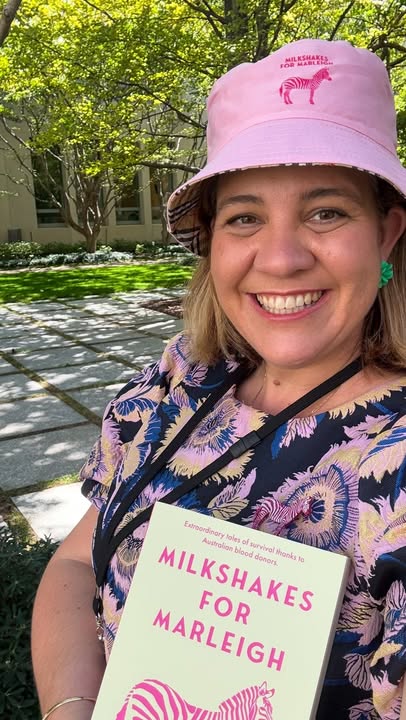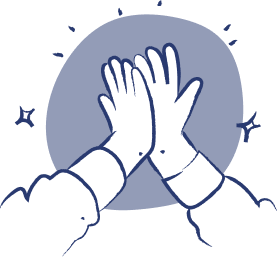Seronegative Autoimmune Encephalitis Lived Experience – Marleigh’s Story

Marleigh was just three years old when she started showing symptoms of Seronegative Autoimmune Encephalitis. However it would take nearly a year, a brain injury and many life threatening status epilepticus seizures before this diagnosis was confirmed. Her mum, Kate, shares her story:
Before she became sick, Marleigh was a happy, strong, healthy three-year-old who frequented playgrounds, tended to her veggie patch and her chooks in our backyard, loved her weekly playgroup, sport and dance lessons. Within the space of a year, she was using a wheelchair, unable to feed herself, regressed back to nappies and was learning how to use a speech device to communicate. Each time she would have a prolonged status epilepticus seizure, she lost more skills. For a while, she didn’t recognise us as her parents. She would then spend months in hospital, undergoing extensive rehabilitation, and even regain some of the skills she had lost, only to have another massive and prolonged seizure, ending up in another helicopter being emergency airlifted to a Paediatric Intensive Care Unit in an induced coma on life support, to start the process all over again. IVIG was the only treatment that worked.
Marleigh was four when she was finally formally diagnosed with Seronegative Paediatric Autoimmune Encephalitis. We were told that it’s a life-threatening condition and that there is no cure, however symptoms can be managed, quality of life improved and periods of remission possible, with treatments of Intravenous Immunoglobulin Infusions (IVIG) – a broad spectrum of antibodies made from donated human plasma.
When Marleigh was at her sickest, we lived life in a 14-daycycle. The first 3-4 days were spent in hospital receiving IVIG and other medications to optimise its effect. This would prolong her life for 10 days at a time before her immune system would, again, start to identify her healthy brain cells as foreign and attack them, causing brain inflammation and terrifying seizures that threatened her life, leaving her with devastating deficits. No amount of science or medical technology can preserve her life without this treatment and blood can’t be made! The kindness of Australian blood donors keeps her alive!
At this time, Marleigh’s Mum Kate became aware of the precarious nature of Australia’s blood supply and upon further investigation, realised that there is persistent critical blood shortages around the world. In Australia, 1 in 3 people will need blood in their lifetime and yet only 1 in 30 eligible donors ever donate it. Knowing that her daughter would be dependent on blood products for life, Kate founded the Milkshakes for Marleigh blood donation advocacy movement (milkshakes are offered to people after the donate blood in Australia) with a mission to end persistent critical blood shortages in Australia and around the world. She set out to create a space where blood recipients could tell their stories to thank their donors and encourage new ones, She also started the Milkshakes for Marleigh Lifeblood Team and in Australia, those who have donated blood after being inspired by Marleigh’s story have saved the lives of nearly 10,000 people in the last 3 years.
Kate has released four seasons of the international award winning Milkshakes for Marleigh podcast, where those who have needed blood tell their stories of survival. The interviews have a light focus on the injury or illness that required treatment with blood transfusion and instead focuses in all the amazing things that blood donors go on to do in their survival.
Kate also wrote the book Milkshakes for Marleigh: Extraordinary tales of survival thanks to Australian blood donors. She is now a highly sought after international speaker and travels the world raising awareness about Autoimmune Encephalitis and the importance of blood donation.
Marleigh is now nine and has blown out the candles on 6 “bonus” birthday cakes thanks to Australian blood donors, each time recognising another year gifted to her by the anonymous blood and plasma donors who have saved her life and make her onging IVIG treatment possible. She has undergone extensive rehabilitation, and her wheelchair and speech devices are now a distant memory. Despite her brain injury, she attends a mainstream school part time. She loves hanging out with her big brothers, swimming, karate and all things creative. Marleigh has a Seizure-Response Service Dog called Paddy who reliably alerts to seizures when she is unwell and has provided incredible support to Marleigh in hospital when she experiences the realities of PTSD from medical trauma. When she grows up, Marleigh would like to be an animal rescuer, a hairdresser or have her own bakery making cupcakes.
While the threat of an Autoimmune Encephalitis relapse always remains, for now Marleigh and her family are enjoying days on the beach on the Sunshine Coast in Queensland, Australia and telling Marleigh’s story to inspire hope in others who are newly diagnosed. As a family, they will continue to encourage people to donate blood and get a “Milkshakes for Marleigh” under the banner of the pink zebra that represents the rare disease, Autoimmune Encephalitis.
For updates on Marleigh’s progress and other extraordinary tales of survival thanks to Australian blood donors, please follow Kate Fisher (milkshakes_for_marleigh) on Instagram.
Get help
Our support team are available from 9am to 5pm (GMT), Monday to Thursday, and 9am to 4.30pm (GMT) on Fridays.
To get in touch, simply call +44(0)1653 699599.
Contact our helpline
